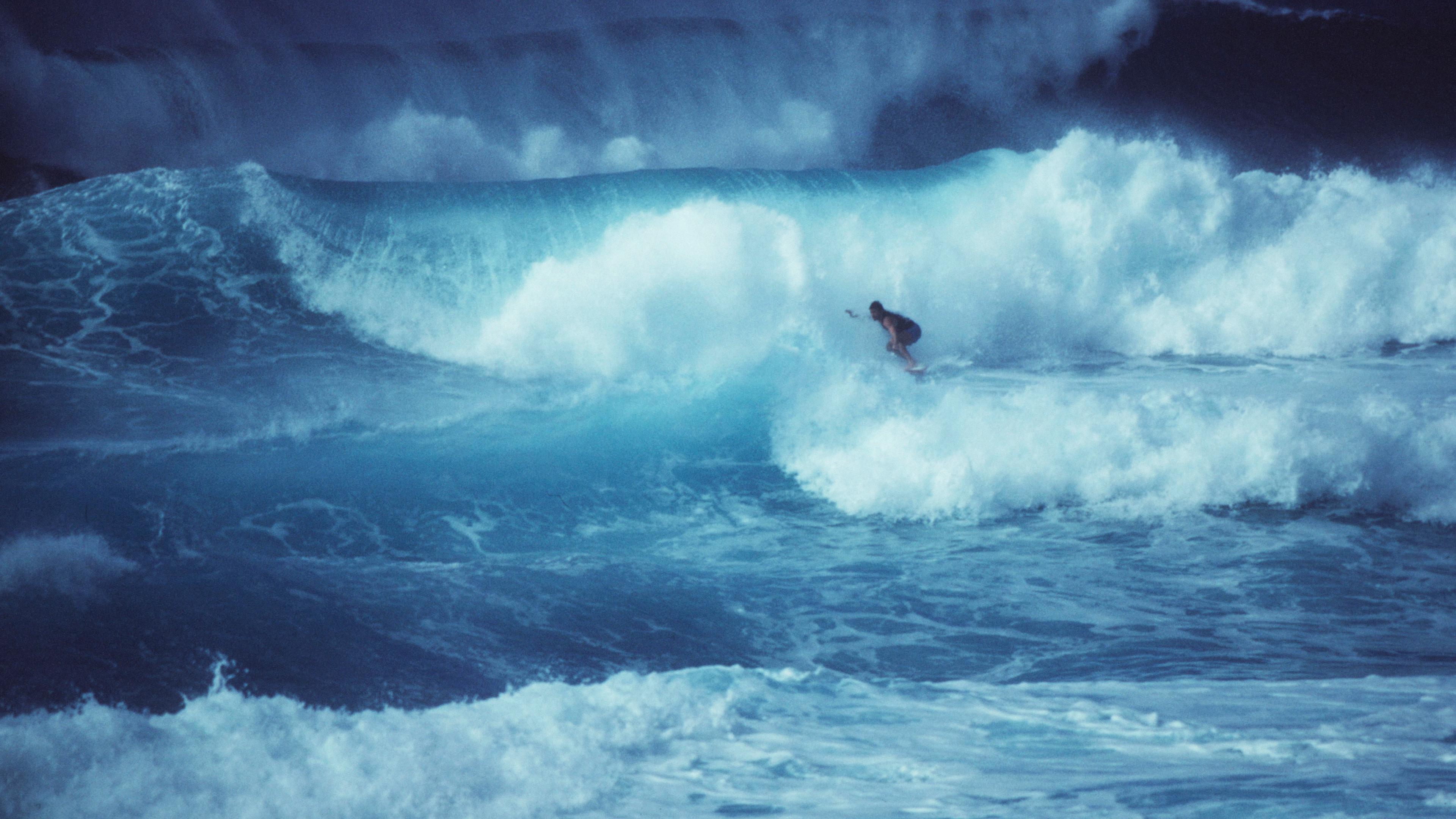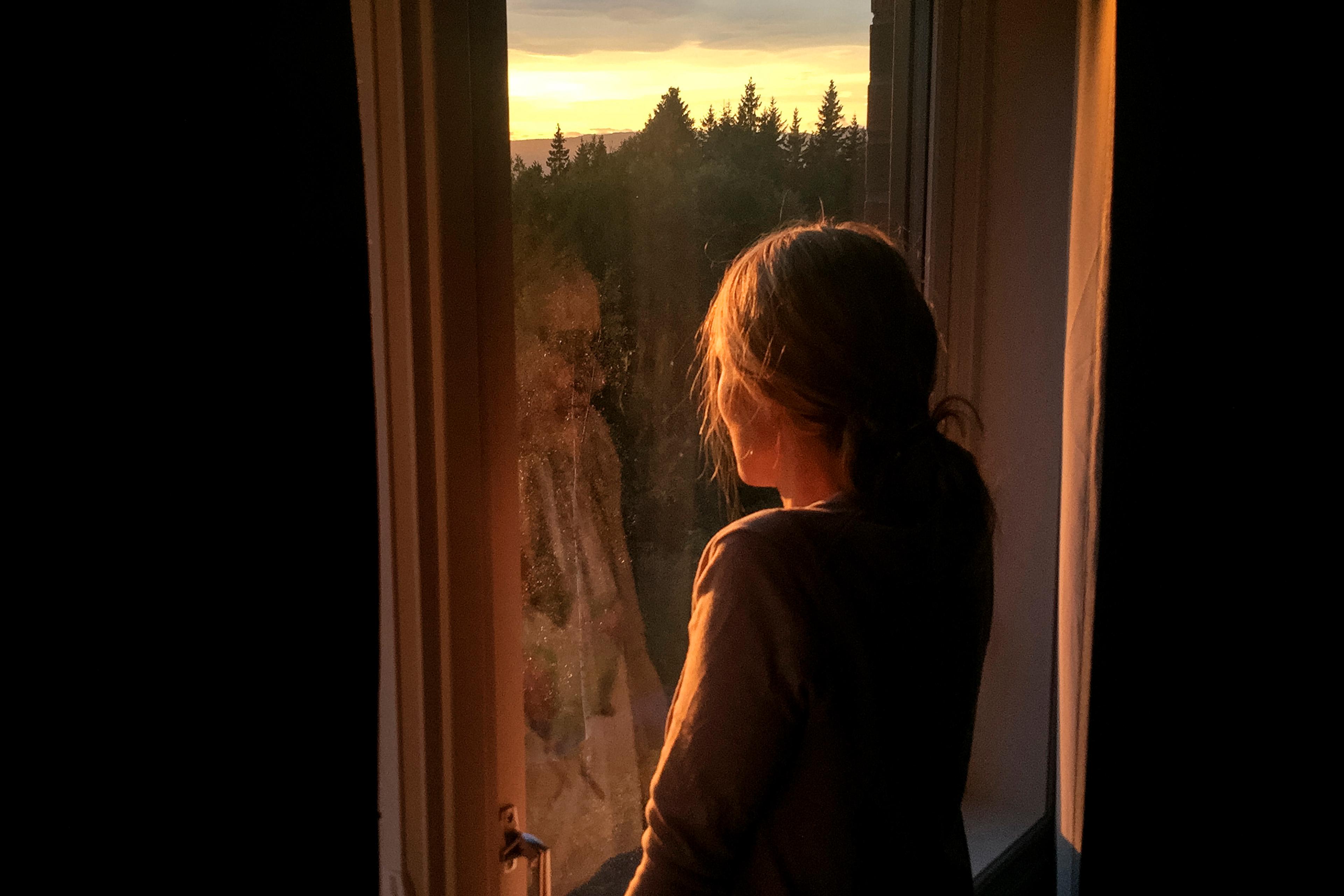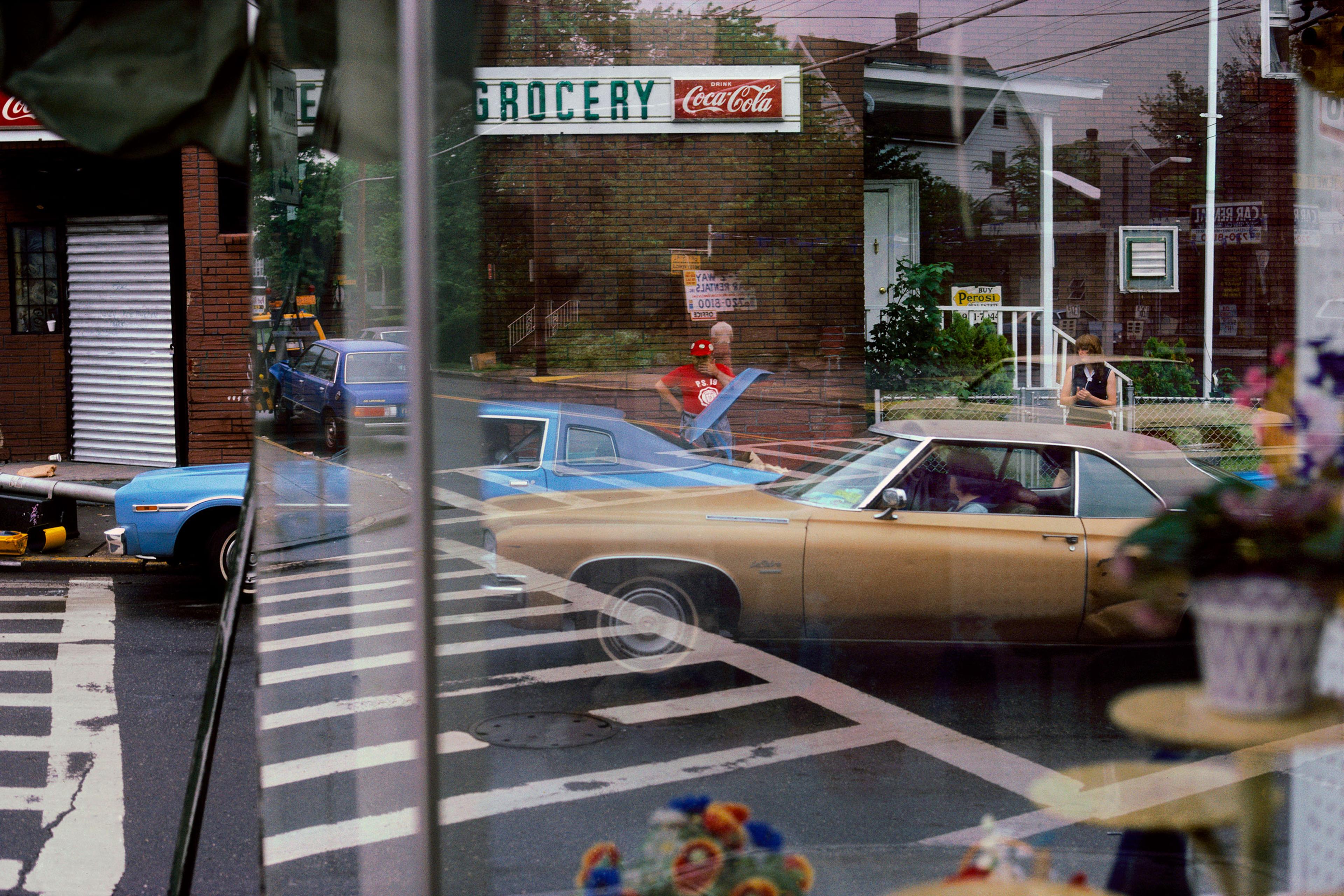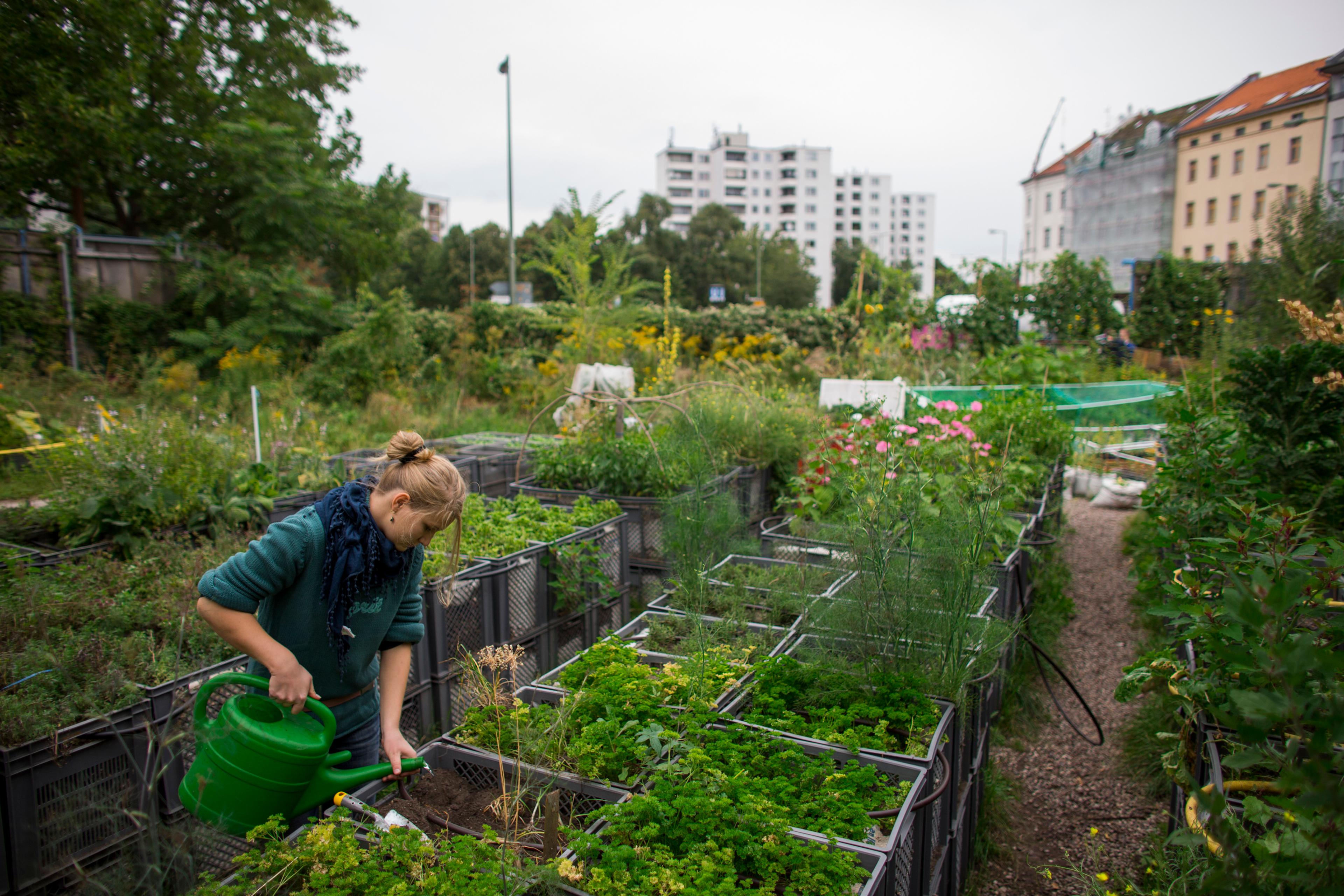Consider a wave rising from the ocean’s depth, which is about to crest and peel along a reef or beach. What does it take to be carried along by that wave’s natural propulsive force, let alone surf it well, doing turns with speed, power and flow?
Speaking as a surfer myself, I can say that the beginning of wisdom here is to firmly accept one’s limited power over the ocean and its waves. Mother Ocean does as she does, whether I like it or not. And yet I’m not entirely powerless, when I can trust the world enough to act and skilfully react, in a sort of adaptive attunement.
To stay attuned, I’ll pay very close attention to the changing moments of the wave. I’ll try to make the right bodily adjustments as each new moment of the wave presents itself, a shift in weight, a low crouch, a decisive break in one direction and then another. And I’ll just keep doing the next right thing, without thinking too much about it.
Though I’m doing a lot here, the unfolding dynamic can feel like it’s happening to me, almost without effort. As the different moments of the wave unfold, I’ll get a sense of easy efficacy, of everything coming together, as I’m propelled along. This sense often builds into a joyous tension – which even grown men and women release in a bellowing hoot or howl, as though drinking from the Fountain of Youth.
The elated state of ‘stoke’, as surfers call it, is really a sort of celebration of what’s come to pass. It’s a celebration of having been caught up in fortunate coalescence of skill and circumstance, of bodily skill attuned to ocean circumstances beyond all control.
There are ways of coping with the seeming meaningless of existence, such as eating a cheeseburger. If you must be alive, why not? Surfing has the opposite existential purport. It’s a sublimely beautiful, profoundly meaningful, indeed totally awesome thing to do with one’s limited time in life, just for its own sake. It is, by itself, reason enough to be alive rather than not. It’s very good cause for stoke.
A lot in life might seem more akin to surfing than to cheeseburger coping. Taking a stroll outside with a friend or the dog. Spending time with kids. Dancing or making music. Done for its own sake, each activity is, itself, a very good reason to be glad to be alive rather than not.
In my book Surfing with Sartre (2017), I made this point to challenge a particular sort of existential bummedness. The existentialists Albert Camus and Jean-Paul Sartre would have us assume that, if there is no super-cosmic purpose to life, then our lives are absurd. My point was that this is a false dichotomy. Perhaps there is indeed a cosmic purpose to life that we’re somehow caught up in. But even if there isn’t, life is hardly absurd. There’s still plenty of very good things to do with one’s limited time in life, plenty of very good reasons to be glad to be alive rather than not. Indeed, for most of us, the pressing existential problem is an over-abundance of decent options: we are ‘condemned to choose’, as Sartre says, but from a plethora of different genuinely good ways our lives might go, knowing we really can’t do them all or ‘have it all’. Short of suffering depression, perhaps in part for lack of sun and exercise, it’s a good problem to have. Better to be here for it, rather than not.
Still, looking back, I don’t think my book fully captured why the act of surfing can bring meaning to life, as opposed to simply making life good. So I’d like to offer a further suggestion. The act of riding a wave, a fortunate coalescence between skill and circumstance, is a sort of serendipity. And being open to serendipity, watching for it, celebrating it, and even bringing it about, is a meaningful way of moving through the world and finding more meaning in life.
What does it mean for there to be ‘meaning’ in life, or for life itself to have ‘meaning’? It’s not enough, I take it, that life can bring experiential satisfaction. It’s also not enough for the goods of life to be genuinely good, objectively speaking. Nor is it enough for ‘subjective attraction to meet objective attractiveness’, as the philosopher Susan Wolf has proposed. In my view, to talk about ‘meaning’ adds a further narrative or story-like element. The meaning in life, or of life, is a matter of how we narrate it, in recounting what happened, retrospectively, or choosing an action, prospectively, based on what would make for a good story.
Philosophers have offered different versions of this idea: see, for example, Helena de Bres’s recent Psyche Idea in defence of memoir, and her paper ‘Narrative and Meaning in Life’ (2018), along with the philosophers she notes in both. For present purposes, think of the ways stories can be meaningful, in familiar literary tropes such as coming of age, comeuppance, fatal errors, happy returns and serendipity. The stories surfers constantly tell – about how the swell, wind and tide came together just so, or about how they barely exited from an impossible tube ride – are stories of the serendipitous. And, of course, surfers aren’t just telling tales. They are living them out, by chasing waves, riding waves, and then talking all about it, recounting the serendipities of the day over tacos and beer, hoping to do it all over again tomorrow. I’d say they’re on to something about meaning in life.
Aristotle discusses the example of friends who encounter each other in the marketplace inadvertently, by ‘accident’ or ‘chance’. If each friend just happened to be standing there buying bread and one bumped into the other entirely by accident, we might say the meeting was ‘sheer luck’ or ‘brute luck’: a mere coincidence. The encounter looks more like ‘serendipity’ if we instead imagine that, earlier that morning, one or both of the friends had wondered how the other was doing, and then, as it happened, they ran into each other (‘Wow, I was just thinking of you!’)
What’s crucial, for both luck and serendipity, is that neither friend had the meeting ‘in their control’. They didn’t plan to meet, or even expect an encounter – not in the way a skilled archer expects to hit a bullseye at close range. If, on the other hand, one friend merely hoped to see the other at the market, without expecting it, and circumstances nevertheless brought them together, the meeting would indeed be serendipitous.
The philosopher Michael Duncan, in a brilliant PhD dissertation (which I co-supervised with Duncan Pritchard at the University of California, Irvine), explains how luck can be seen as a narrative concept – the sort that saliently leaves out causes. Telling the story of a lottery win, one might say: ‘My wife bought me a lottery ticket and, wouldn’t you know it, it won.’ This simple story represents two events – the ticket purchase and the ticket draw for the win – and relates them as the surprising intersection of separate chains of causation, with no interesting common cause between them (the Big Bang isn’t interesting since it’s the cause of everything).
Serendipity is not sheer luck, but luck of a special sort, yet it likewise seems to be a narrative concept. It certainly makes for interesting stories. The romcom film Serendipity (2001) and the TV shows Seinfeld (1989-98) and Curb Your Enthusiasm (2000-) attest to that. It’s also the sort of concept we use in finding a meaningful story in real events. And if those events add up to intersecting lives, relationships and community, founded on things such as spontaneous encounters in the marketplace, at the post office or at the pub or restaurant, they start to look a lot like meaning in life.
The appearance of meaning fades if we think of the world as just so many accidents. Random sequences of events – repeated throws of dice, for instance – present interesting, even predictable patterns by nothing more than chance. Coincidences happen all the time in life and history, more than we like to believe. Most aren’t especially interesting to us, though we’re pretty good at noticing them once our interest is piqued. Buy a red car, and suddenly you see red cars everywhere. You’re not necessarily catching on to a semi-secret trend here; you’re just now noticing what was true and plain to see all along, that a lot of people happen to like red cars, and car companies therefore make and sell a lot of red cars in order to make money.
We do have natural abilities at pattern detection, and we can use them as though playing a game of curiosity. We might take special note of uncanny coincidences, as though divining mystical secrets. Did you know that the US presidents Abraham Lincoln and John F Kennedy were each assassinated by men with names consisting of three words and 15 letters in total, among other weirdness? Some find astrology interesting and fun as a way of seeing patterns in life and love, even though, when pressed, they admit it’s really just a sort of playful pastime. No, they admit, the stars aren’t controlling our fortunes. (And, anyway, if stars – ie, giant fireballs in distant, cold galaxies – somehow were determining events back here on Earth, would life be any more meaningful? Wouldn’t that be just weird?)
But now we are getting closer to meaning in life. What’s especially interesting to us is not tales of sheer coincidence, but ways in which circumstances somehow worked out or coalesced with our active plans. You thought you’d never travel, but anyway you put an Alaskan cruise on your ‘bucket list’, intending to go at some point, not knowing when or how. And, lo and behold, you eventually noticed an advertisement for a steep discount that prompts you to cut back on dinners out and think seriously of taking the trip!
Now your skill in spontaneous pattern detection, even over random coincidences, is guiding your life, drawing up things for your attention, creating an opportunity for real action you’d have missed had you never formed the open-ended plan from the start. That’s partly your skill and intention, and partly circumstance. There’s meaning when the two serendipitously coalesce, as though the world is working in your favour, with fortune, as it were, smiling upon you.
Just so with surfers. They’ll of course have general guesses about the waves for the day or the lines they might draw when the moment presents itself. They also know they’ll have to fill in the rest as they go, counting on serendipity. That’s a matter of acquired skill, but there never are guarantees. Since surfing happens only with fortunate circumstance, it amounts to a kind of faith – faith that the world will work in your favour, if you just do your part, and keep doing the next right thing.
So Sigmund Freud seems in a way right about ‘oceanic feeling’, which he speculated was a basis for religion – the sense that we really can be at home in, and belong to, the world, including our sublime and beautiful oceans. We can indeed, if we surf life.








